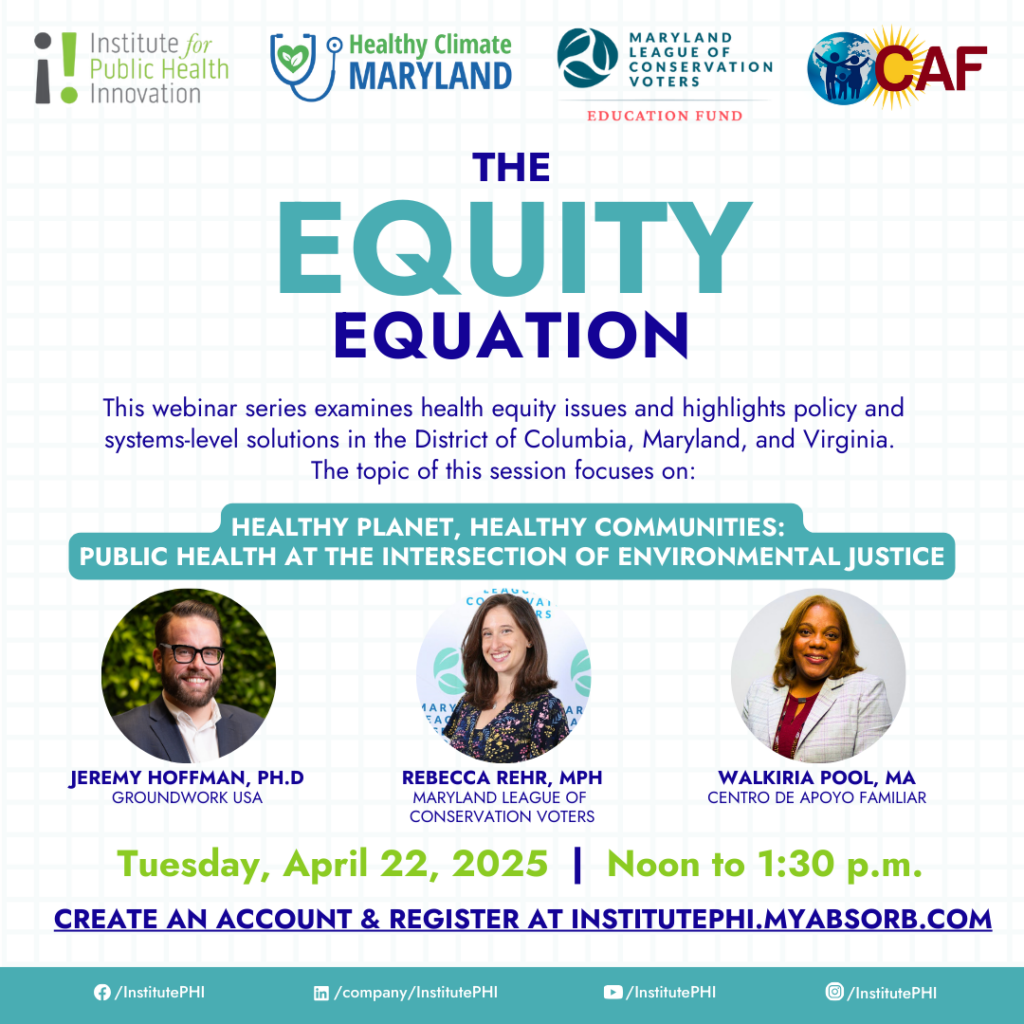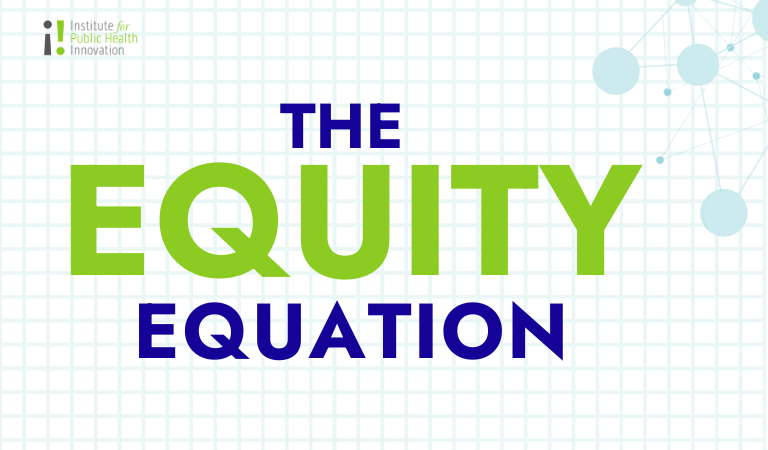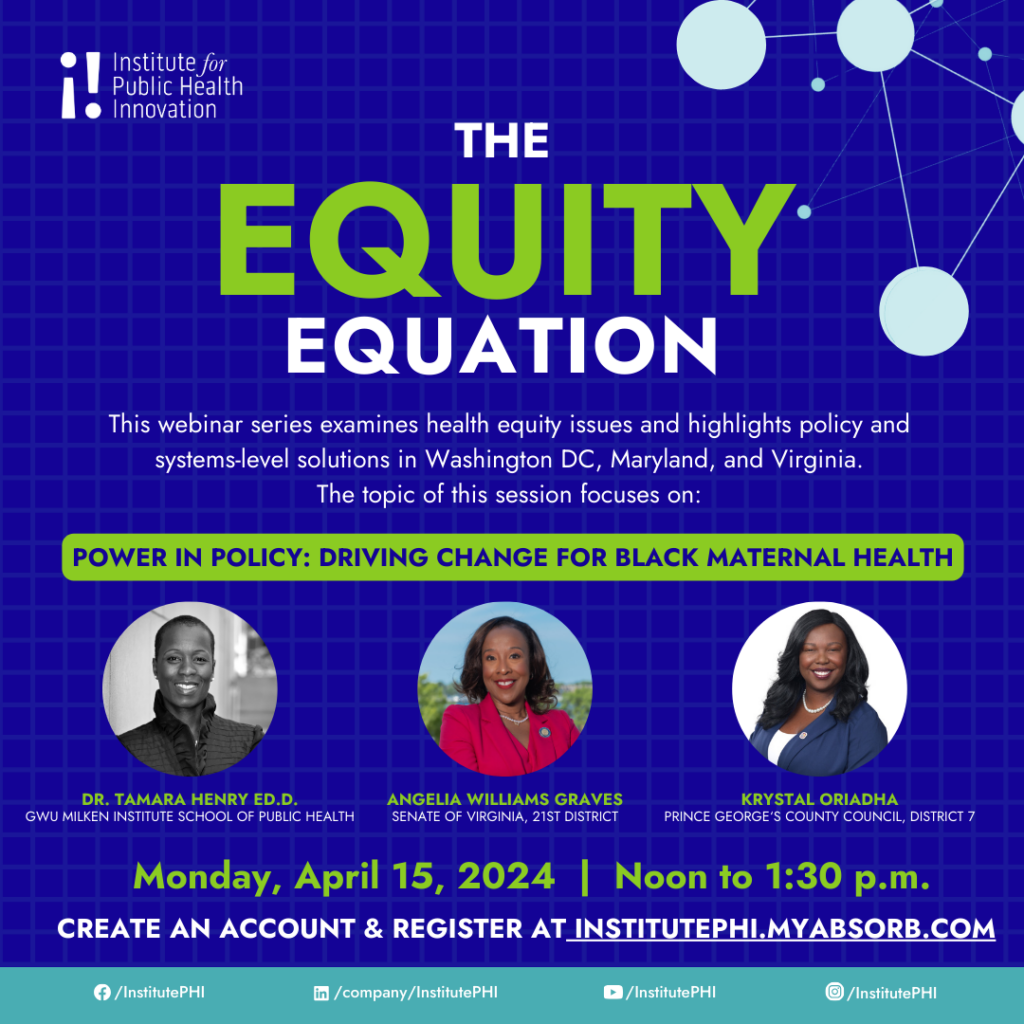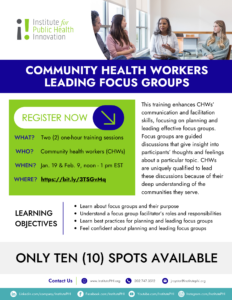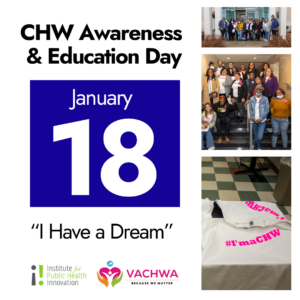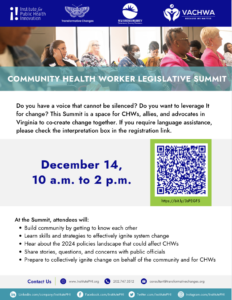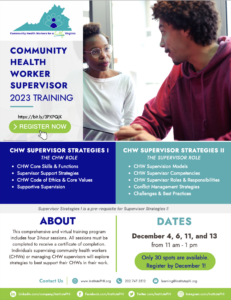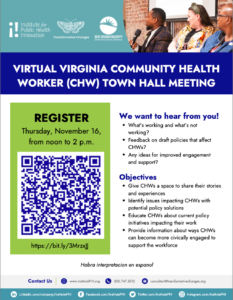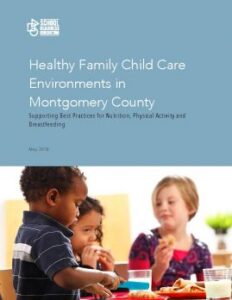
On April 29-30, 2024, CHWs for a Healthy VA will host the Coalitions Empower Conference: A Seat at the Table in Abingdon, VA. This FREE conference will introduce community health worker (CHW) regional coalitions and other Virginia coalitions to resources and best practice methodologies from various disciplines. Register to learn about:
- Expanding and sustaining existing CHW coalitions
- Ensuring the long-term sustainability of the Virginia CHW workforce
Objectives:
- Leave with tools, best practice methodologies, and action steps to strengthen coalitions.
- Have a better understanding and awareness of CHWs’ roles in supporting communities to achieve improved health outcomes.
- Expand professional networks with other like-minded individuals and organizations for the expansion, sustainability, and impact of the coalitions.
- Learn effective strategies for coalition implementation and sustainability.
Who: CHW regional conveners, CHW coalition members, CHWs, ecosystem/community builders, and other thought leaders across Virginia.
When: April 29, from 8 a.m. to 4 p.m. and April 30, from 8:30 a.m. to 1:30 p.m.
Where: Southwest Virginia Higher Education Center, One Partnership Circle, Abingdon, VA 24210
Agenda
Speakers/Panelist/Conveners
If you have additional questions, please contact [email protected].
This CHWs for a Healthy VA project is supported by the Centers for Disease Control and Prevention of the U.S. Department of Health and Human Services (HHS) as part of financial assistance awards totaling over $13 million, with 100 percent funded by CDC/HHS. The contents are those of the author(s) and do not necessarily represent the official views of, nor an endorsement, by CDC/HHS, or the U.S. Government.
